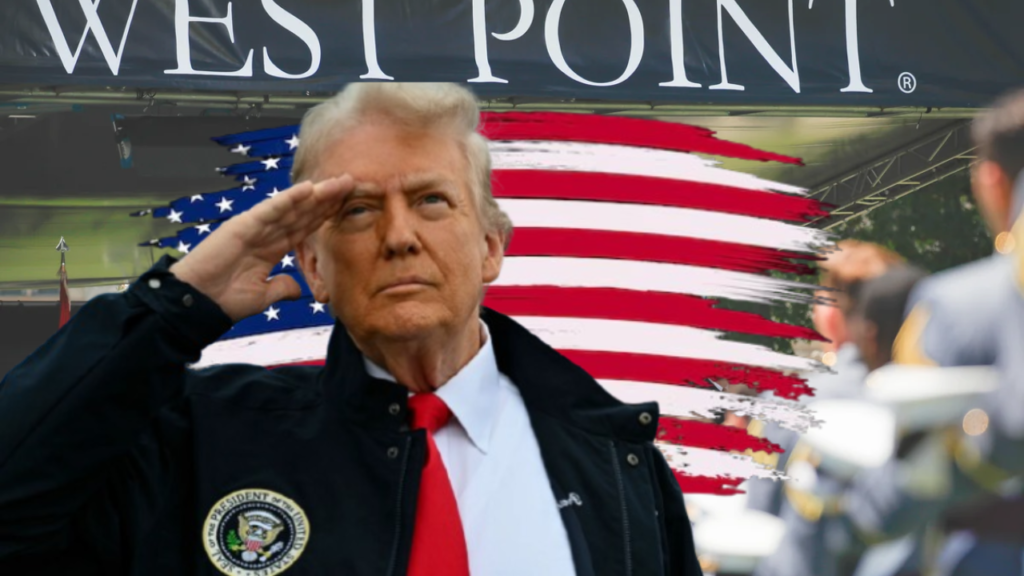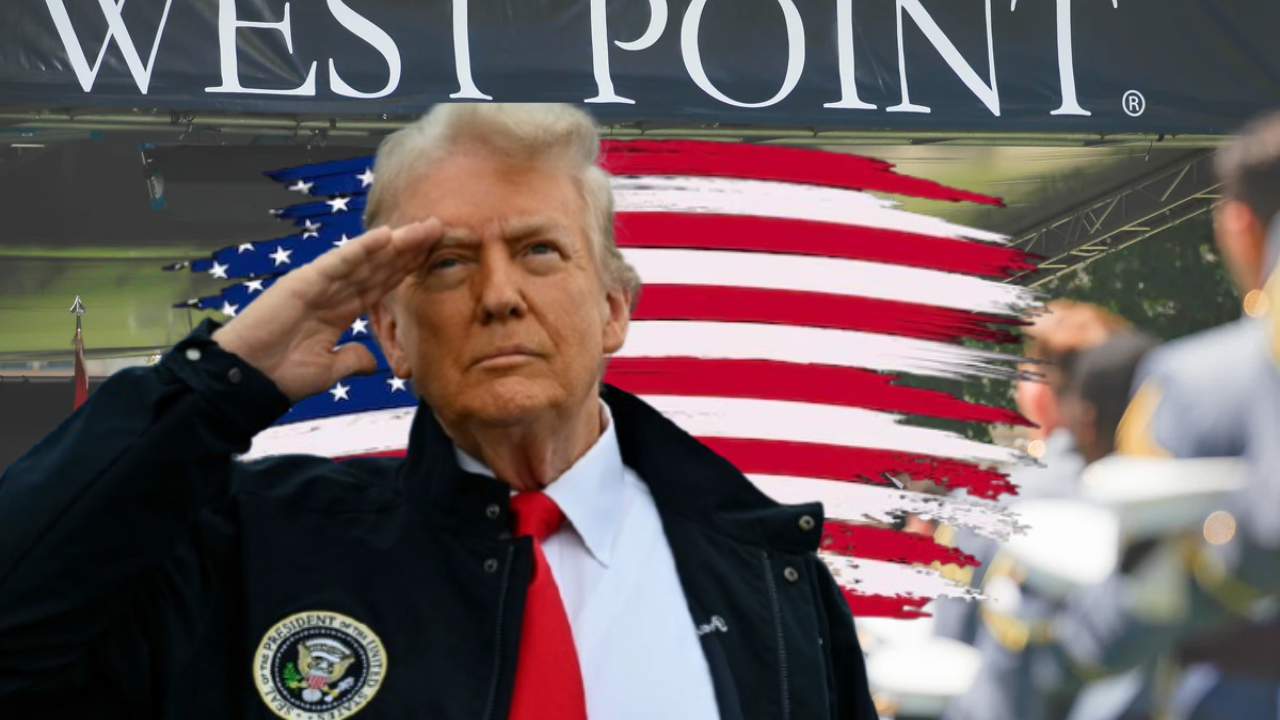On May 24, 2025, former President Donald J. Trump returned to West Point to deliver a high-profile commencement address at the U.S. Military Academy. This event didn’t just mark a symbolic return to military tradition—it also came amid sweeping changes to Diversity, Equity, and Inclusion (DEI) policies across military academies. The speech and the policy changes have stirred both praise and controversy, making it crucial to understand what’s changing and why it matters.

For families of graduating cadets, the ceremony was a moment of immense pride and celebration. However, for faculty, alumni, and policy experts, the ceremony served as a backdrop to a significant federal policy shift: the enforcement of Executive Order 14151. This executive order has triggered dramatic changes in how America’s top military academies address race, gender, and identity, sparking a nationwide debate about military readiness, inclusiveness, and academic freedom.
Quick Summary
- Date & Event: Trump’s West Point commencement speech occurred on May 24, 2025.
- Policy Trigger: Coincided with the full implementation of Executive Order 14151, which eliminates all DEI mandates from federally funded institutions.
- Impacted Programs: Over 12 student organizations disbanded, including cultural, gender-based, and professional clubs.
- Curriculum Overhaul: Topics including systemic racism, feminism, and intersectionality removed from academic syllabi.
- Faculty Protest: At least one senior faculty member resigned in objection to the changes.
- Admissions Reform: Race-based admissions preferences have been formally ended in favor of a merit-only system.
- Official Source: Read the Executive Order 14151 here
What Is Executive Order 14151?
Executive Order 14151, signed on January 20, 2025, by President Trump during the early weeks of his second term, effectively bans all DEI-related activities in federal institutions. This includes the military academies, public universities, and federally funded research bodies.
Under this order:
- Training sessions based on race, gender, or ethnic identity are forbidden.
- Student organizations promoting DEI goals must disband.
- Scholarships or hiring preferences based on DEI criteria are removed.
- Academic coursework may not include identity-focused theories like critical race theory or gender studies.
“No federal agency or recipient of federal funds shall maintain or promote DEI-related mandates, practices, or initiatives,” the order mandates.
This executive action is part of a larger political effort to remove what Trump and his allies describe as “woke ideology” from federal programs, especially in institutions seen as essential to national security and unity.
What Happened at West Point?
While Trump’s return to West Point had the pomp of a graduation ceremony, it carried significant political symbolism. In the months leading up to the event, West Point implemented extensive internal changes to align with the new executive order.
Disbanding of DEI-Related Student Organizations
In February 2025, the academy disbanded 12 student groups, citing federal compliance. These included:
- Society of Women Engineers
- National Society of Black Engineers
- Latin Cultural Club
- Native American Heritage Forum
- Cadet LGBTQ+ Alliance
- Asian American Cadet Council
Leadership justified the move as a means to “enhance unit cohesion” and “reaffirm merit-based principles”. However, critics say it strips underrepresented cadets of safe spaces and mentorship networks.
Curriculum Revisions
The academic impact has been equally significant. All DEI-linked content has been eliminated from the curriculum. Subjects such as systemic racism, intersectionality, gender theory, and implicit bias are now banned.
Faculty members were instructed to revise lesson plans and syllabi. A number of humanities and social science courses were suspended or restructured. The most public reaction came from philosophy professor Graham Parsons, who submitted his resignation and released an open letter denouncing the new guidelines as a threat to intellectual diversity.
Data & Stats
According to West Point’s 2023 institutional report:
- 37% of cadets identified as racial or ethnic minorities.
- 20% of cadets were women.
- 12% of faculty specialized in social science or cultural studies.
These statistics had previously been cited as justification for promoting inclusive education. With the rollback, supporters argue that recruitment and advancement are now fully race- and gender-neutral.
A Closer Look at the Military-Wide Impact
The changes at West Point are not isolated. Sister institutions including the Naval Academy, Air Force Academy, and Coast Guard Academy are also implementing similar reforms.
Admissions Overhaul
Most service academies have now removed affirmative action components. Admissions committees are instructed to use strictly quantifiable criteria, including:
- SAT/ACT scores
- Physical fitness test results
- High school academic performance
- Letters of recommendation
This follows the Supreme Court’s 2023 decision ending affirmative action in civilian higher education. Supporters claim the move levels the playing field. Critics warn it could reduce access for candidates from historically underserved communities.
DEI Staff Roles Eliminated
Administrative positions previously focused on DEI have been eliminated. Offices of Inclusive Excellence, once common at these institutions, have been shut down or reassigned. Faculty who specialized in these areas are now being redirected to teach core courses.
Perspectives: What Supporters and Critics Say
Supporters
Backers of the policy see it as a long-overdue correction.
“The military’s job is to win wars, not engage in social experiments,” said Defense Secretary Pete Hegseth. “We’re restoring discipline and mission focus.”
Supporters argue that by focusing on merit, discipline, and teamwork, the military will cultivate more effective leaders.
Critics
Detractors, including former defense officials and university scholars, are deeply concerned. They claim the elimination of DEI:
- Weakens morale among marginalized groups
- Narrows the range of perspectives in strategic thinking
- May reduce the global competency of military leaders
“Leadership isn’t just about tactics—it’s about understanding people,” said Gen. Lloyd Austin, who served as Secretary of Defense during the Biden administration.
What This Means for Cadets and Future Military Leaders
For aspiring military officers, these changes present a radically different academic and leadership environment:
- Support networks dismantled: Cultural and identity-based mentorship is no longer available.
- Academic freedom restricted: Professors face limitations in teaching controversial topics.
- Training restructured: Leadership coursework avoids political or social context.
- New scholarship rules: Financial aid is now awarded strictly on academic and physical merit.
While some cadets say the reforms offer a more equal system, others report feelings of isolation, silencing, or lack of representation.
Overall Summary
Donald Trump’s 2025 commencement address at West Point wasn’t just a symbolic return to one of the nation’s oldest military institutions—it was a turning point in federal education and defense policy. With the full implementation of Executive Order 14151, military academies are entering an era focused heavily on traditional values and performance metrics.
Supporters praise the reforms as necessary for national security and military cohesion. Critics see them as a rollback of decades of progress toward diversity and inclusion. As these policies take root, their long-term consequences will shape the identity, effectiveness, and global image of the United States armed forces.
Whether this shift strengthens or weakens the military remains to be seen, but one thing is certain: the impact will be felt for generations.
Read More
Dow Jones Today: Stock Futures Slide as Trump Threatens EU: Trump’s Graduation Speech at West Point Coincides With DEI Policy UpdatesFAQs About Trump’s Graduation Speech
1. What is DEI?
Diversity, Equity, and Inclusion (DEI) refers to strategies and initiatives that aim to create fair and welcoming environments for individuals of all backgrounds, including race, gender, age, ability, and socio-economic status.
2. Why is DEI being removed from military academies?
The Trump administration sees DEI programs as ideologically driven, suggesting they divide units and detract from mission-critical training. The goal is to establish a standardized, merit-based military culture.
3. Will these changes affect federal scholarships or funding?
Yes. Scholarships or financial aid programs previously linked to diversity goals have been restructured or removed. Current aid now emphasizes performance-based metrics.
4. How are cadets reacting?
Reactions vary. Some cadets support the changes, saying it levels the playing field. Others feel they’ve lost important resources and supportive communities that helped them thrive.









No Comments Yet
Be the first to share your thoughts.
Leave a Comment